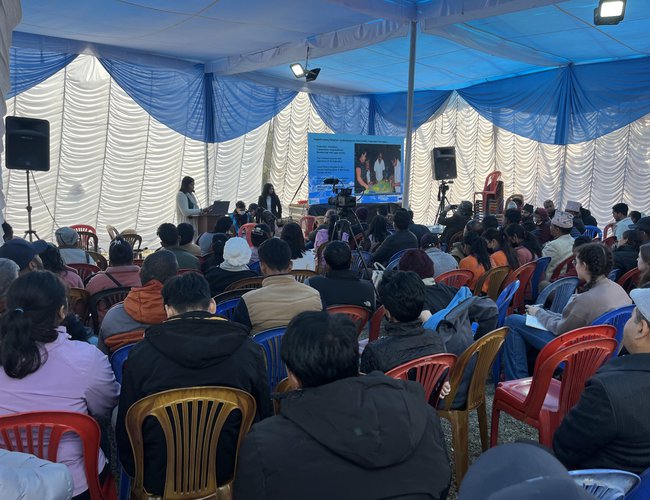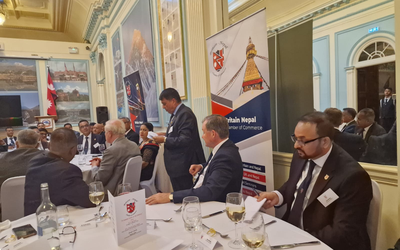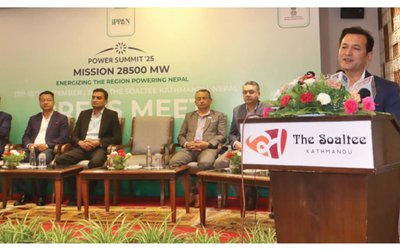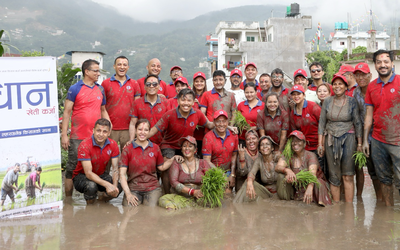
The 16th edition of the World Social Forum (WSF) 2024 concluded in Kathmandu on Monday by issuing 60 declarations from organisations worldwide and reaffirming their commitment to building a fairer and more just world.
The Forum started in Brikutimandap with the theme “Another World Is Possible,” on February 15. Representatives from various sectors including climate change activists, workers, farmers, trade unions, women’s organisations, LGBTQI groups, indigenous communities, ethnic organisations, civil society groups and social movements participated in the five-day event.
The WSF, originating from civil society movements against globalisation in the late 1990s, held its inaugural event in Porto Alegre, Brazil, in 2001. The journey to WSF 2024 in Kathmandu began in November 2022 when Nepal was selected as the potential host country for the 16th edition. The International Council (IC) and the Asia-Pacific Social Forum (APSF) led the selection process, according to a press statement issued by the Nepal Organising Committee on Monday.
March 2023 saw Nepal being officially designated as the host nation, with Kathmandu chosen as the host city. Subsequently, a general council, organising committee and various subcommittees were formed in Nepal, with members volunteering their efforts to ensure the success of WSF 2024, the statement read.
The event witnessed a staggering turnout of over 50,000 participants from 98 nations and six continents, including a concurrent Intercontinental Youth Forum with 410 participants from over 30 countries. More than 400 activities, spanning thirteen diverse themes, were registered for the event, reflecting the multifaceted nature of discussions.
Sushil BK, a member of the Media Coordination Sub-committee, said in a press statement that throughout the event, individuals and groups affected by the current global order, including various social movements, workers, farmers, youth, women, Dalits, tribals, Madhesi, people with disabilities and civil society organisations convened for meetings, conferences, and discourses participated in the forum.
The outcomes of the discussions have been compiled into a comprehensive manifesto, encompassing more than 60 announcements accessible through the WSF website. He expressed gratitude for the extensive coverage of WSF activities thus far, the organisers emphasised the importance of proper coverage of the declaration and other pertinent issues during the closing programme.
The 16th edition of the World Social Forum Nepal (WSF) held from February 15 to February 19.
The World Social Forum (WSF) is an open forum for free and horizontal exchange of ideas, experiences, and strategies oriented toward enacting and generating alternatives to neoliberalism.
Since its inception in 2001 in Porto Alegre in Brazil, the WSF has been a unifying space for the transnational actors of the counter-hegemonic globalization ‘from below’ with the pledge of Another World is Possible, the organizing committee said in a press statement.
“The WSF rejects economic policies and growth through privatizing social services, opposes militarism and imperialism, and provides an ‘open space’ for people to reflect and debate alternative ideas, formulate proposals, exchange lived experiences, and seek alternative solutions for the current crises that the humankinds are facing. The WSF movements explicitly act to oppose neoliberal global capitalism and to address issues of global social justice and environmental sustainability. It is a forum governed by the charter of principles and leadership bodies: an International Council (IC), Regional Forums such as the Asia Pacific Social Forum Facilitation Committee (APSF-FC), and a Nepal Organizing Committee (NOC).
The thematic assemblies and parallel sessions was held on 16, 17, and 18 February. An Intercontinental Youth Forum was organized on 17th February. Likewise, a Parliamentary Forum was also held
Participants presented several thematic panels followed by self-organized activities/sessions/assemblies and end with informal meetings in open spaces along with cultural programs. There will be around 900-1000 self-organized activities and assemblies throughout the WSF2024 event. The forum is anticipated to have over 50,000 participants, delegates, and guests from all continents of the world.
With a decade-long armed struggle, people’s movement, other social movements and political struggles Nepal built a dynamic democratic process that has led to political transformation by embracing secularism and adopting a federal democratic republic. With the promulgation of the new constitution on September 20, 2015, Nepal aspired for Socialism-where inclusion, social justice, ethnic, lingual and cultural diversity is espoused. Due to these progressive aspirations Nepal carries, Nepal was chosen as the host for WSF2024, the organizing committee said.
“The global solidarities are critical to the change we are fighting for, for building peace, security, democracy, equity, and justice. The recent onslaught of right-wing, anti-democratic, and fundamentalist forces threaten the very fabric of our societies, yet they are succeeding in winning support amongst some sections of the people, they are winning elections, forming governments which go on to stifle dissent, generating hatred and divisions, using nationalism, religion, insecurities of all kinds.”
With reporting from RSS Photo: Social media
- Nepal-UK Tech Forum Held
- Jul 06, 2025
- Hari Sayani or Devshayani Ekadashi 2025: Day Of Tulsi Plantation
- Jul 06, 2025
- Siddhababa Tunnel Makes A Major Milestone
- Jul 06, 2025
- Weather Forecast: Generally Cloudy Across The Country With Heavy Rain At One Or Two Places Gandaki, Bagmati and Koshi Provinces
- Jul 06, 2025
- India’s External Affairs Ministry’s Senior Officials Says Indo-Nepal relations are ever expanding
- Jul 05, 2025















